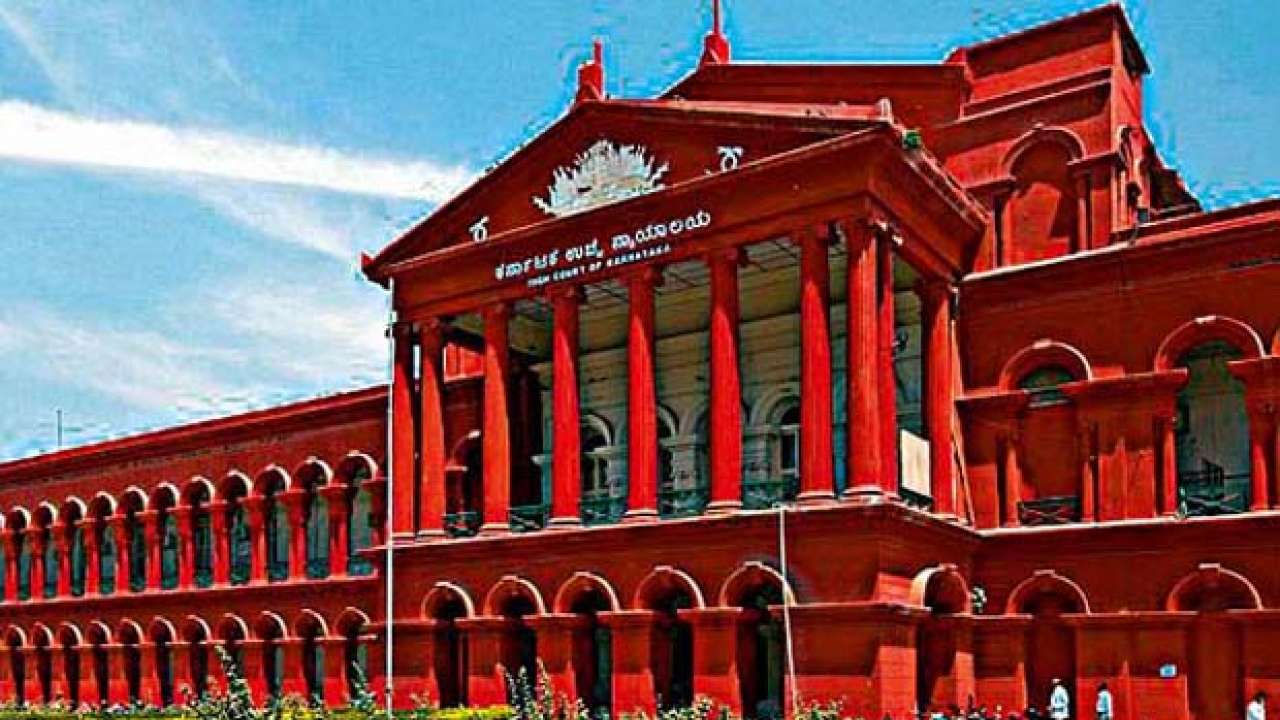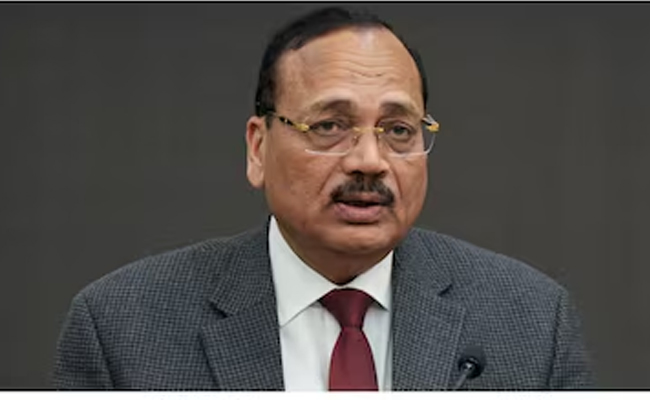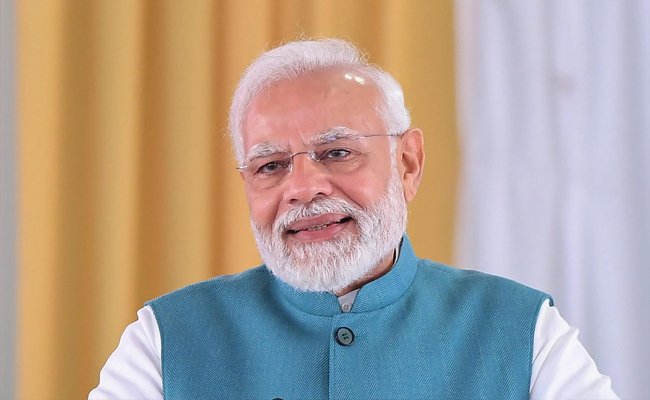Bengaluru, Mar 14: Observing that it was not prudent to pollute the environment in the name of worship, the High Court of Karnataka on Tuesday rebuked the Bruhat Bengaluru Mahanagara Palike (BBMP) and Bangalore Development Authority (BDA) for allowing construction on the Mallathahalli lake bed during the recent Shivaratri festival.
The Division Bench of Justice B Veerappa and Justice T Venkatesh Naik opined that the civic bodies were primarily responsible for creating litigations.
On Tuesday, petitioner Geetha Mishra filed an interlocutory application in the public interest litigation she had filed against the filling up of the lakebed of Mallathahalli lake in the Rajarajeshwari Nagar Assembly Constituency. She alleged that on Shivaratri an open air theatre and statue of Lord Shiva had been installed on the lakebed.
The BBMP contended that the statue of Shiva was a temporary structure and that it was removed after the festival. The petitioner's advocate argued that the construction of the idol and the open air theatre resulted in polluted water entering the lake.
The Bench, after considering the arguments of both sides asked why worship should involve polluting the lake.
The Court said that as per Section 12 of the Karnataka Lake Conservation and Development Authority ????Act, construction activities on lake beds is not allowed. It asked who had given permission for it.
If civic agencies followed the rules, there would be no reason for litigations to arise. It warned that if pollution was not curtailed future generations would blame us, it said.
The Bench directed the authorities to ensure that apart from the three acres of land under litigation, the remaining 71 acres of the lake are protected and not used for any other purpose.
The Court directed that no individual, politician or association should be allowed to conduct any activity or construction on the lake bed.
It also directed that the kalyani built on the lake should be used for the limited purpose of immersion of Ganesha and Durga idols during the respective festivals only and should be immediately cleaned afterwards, so that polluted water does not enter the lake.
The interlocutory application was disposed of, with the Court stating that the BBMP should strictly implement the provisions of the Lake Conservation Act.
Let the Truth be known. If you read VB and like VB, please be a VB Supporter and Help us deliver the Truth to one and all.
Jaisalmer (PTI): Pushing for a "unified judicial policy", Chief Justice of India Surya Kant on Saturday said technology can help align standards and practices across courts, creating a "seamless experience" for citizens, regardless of their location.
He said high courts -- due to the federal structure -- have had their own practices and technological capacities, and "regional barriers" can be broken down with technology to create a more unified judicial ecosystem.
Delivering the keynote address at the West Zone Regional Conference in Jaisalmer, Kant proposed the idea of a "national judicial ecosystem" and called for an overhaul of India's judicial system with the integration of technology.
"Today, as technology reduces geographical barriers and enables convergence, it invites us to think of justice not as regional systems operating in parallel, but as one national ecosystem with shared standards, seamless interfaces, and coordinated goals," he said.
He emphasised how the role of technology in the judiciary has evolved over time.
"Technology is no longer merely an administrative convenience. It has evolved into a constitutional instrument that strengthens equality before the law, expands access to justice, and enhances institutional efficiency," he said, highlighting how digital tools can bridge gaps in the judicial system.
Kant pointed out that technology enables the judiciary to overcome the limitations of physical distance and bureaucratic hurdles.
"It allows the judiciary to transcend physical barriers and bureaucratic rigidities to deliver outcomes that are timely, transparent and principled," he said, adding that the effective use of technology can modernise the delivery of justice and make it more accessible to citizens across the country.
The CJI called for implementing a "unified judicial policy".
He said India's judicial system has long been shaped by its federal structure, and different high courts have their own practices and technological capacities.
"India's vast diversity has led to different high courts evolving their own practices, administrative priorities and technological capacities. This variation, though natural in a federal democracy, has resulted in uneven experiences for litigants across the country," he said.
Kant underscored that predictability is crucial for building trust in the judicial system.
"A core expectation citizens place upon the courts is predictability," he said, adding that citizens should not only expect fair treatment but also consistency in how cases are handled across the country.
He pointed to the potential of technology in improving predictability.
"Technology enables us to track systemic delays and make problems visible rather than concealed," he said.
By identifying areas where delays occur, such as in bail matters or cases involving certain types of disputes, courts can take targeted action to address these issues and improve efficiency, Kant said.
The CJI explained that data-driven tools could identify the reasons behind delays or bottlenecks, allowing for faster, more focused solutions.
"Technology enables prioritisation by flagging sensitive case categories, monitoring pendency in real time and ensuring transparent listing protocols," he said.
Justice Surya Kant also discussed the importance of prioritising urgent cases where delays could result in significant harm. He highlighted his recent administrative order that ensures urgent cases, such as bail petitions or habeas corpus cases, are listed within two days of curing defects.
"Where delay causes deep harm, the system must respond with urgency," he stated, explaining that technology can help courts identify and expedite such cases.
Kant also raised the issue of the clarity of judicial decisions.
He noted that many litigants, despite winning cases, often struggle to understand the terms of their judgment due to complex legal language.
"Although the orders had gone in their favour, they remained unsure of what relief they had actually secured because the language was too technical, vague or evasive to understand," he said.
He advocated for more uniformity in how judgments are written.
"A unified judicial approach must therefore extend to how we communicate outcomes," he said.
The CJI also discussed the role of AI and digital tools in improving case management. He pointed to the potential of AI-based research assistants and digital case management systems to streamline judicial processes.
"Emerging technological tools are now capable of performing once-unthinkable functions. They can highlight missing precedent references, cluster similar legal questions, and simplify factual narration," he said, explaining how these technologies can help judges make more consistent decisions.
He also highlighted tools like the National Judicial Data Grid and e-courts, which are already helping to standardise processes like case filings and tracking.
Kant reiterated that the integration of technology into the judicial process is not just about improving efficiency but about upholding the integrity of the system and strengthening public trust.
"The measure of innovation is not the complexity of the software we deploy, but the simplicity with which a citizen understands the outcome of their case and believes that justice has been served," he said.





